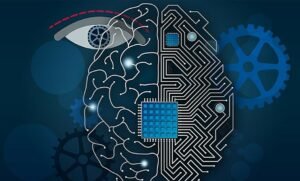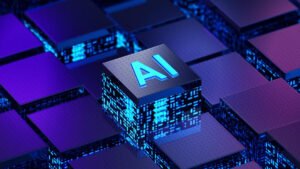Interview with Mr.Stuart J. Russell
[Interviewer]: Good day, everyone! Today, we have the honor of sitting down with Professor Stuart J. Russell, a renowned AI researcher and author of the book “Artificial Intelligence: A Modern Approach.” Welcome, Professor Russell!
[Stuart J. Russell]: Thank you very much. It’s a pleasure to be here.
[Interviewer]: Let’s start by discussing your book, which has become a seminal resource in the field of artificial intelligence. What inspired you to write “Artificial Intelligence: A Modern Approach”?
[Stuart J. Russell]: The inspiration behind “Artificial Intelligence: A Modern Approach” came from recognizing the need for a comprehensive and up-to-date textbook that could serve as an introduction to AI for students and professionals alike. When I began teaching AI courses, I couldn’t find a single book that covered the broad spectrum of AI techniques and concepts, from classical methods to more modern approaches like machine learning and deep learning. So, the idea for the book was born out of necessity and a desire to provide a comprehensive resource for the AI community.
[Interviewer]: Your book has indeed become a staple in AI education. As AI continues to advance, what areas do you believe hold the most promise for the future of artificial intelligence research?
[Stuart J. Russell]: AI has made remarkable progress over the years, and there are several exciting areas that hold great promise for the future. One of the most important frontiers is the development of AI systems that possess a deeper understanding of human values and can align their actions with our preferences. Ensuring that AI systems act safely and ethically is a critical challenge we must address.
Additionally, research into AI fairness and bias reduction is crucial for building AI systems that treat all individuals fairly and without discrimination. AI can also revolutionize healthcare, climate change mitigation, and personalized education, among other fields, making significant contributions to society.
[Interviewer]: Ethics is undeniably a crucial aspect of AI development. How do you envision the collaboration between AI researchers, policymakers, and the general public to address ethical concerns and ensure the responsible development and deployment of AI technologies?
[Stuart J. Russell]: Collaboration is essential in tackling ethical concerns surrounding AI. Researchers must actively engage with policymakers and the public to understand and address the societal impact of AI technologies. Policymakers play a vital role in crafting regulations that ensure AI systems are developed and deployed responsibly.
To involve the general public, we need more efforts to educate people about AI and its implications. Public input can help shape AI policies and provide diverse perspectives on ethical issues. In essence, creating a multidisciplinary dialogue between AI researchers, policymakers, ethicists, and the public is key to fostering responsible AI development.
[Interviewer]: That’s a very comprehensive approach. Moving forward, how do you see the relationship between humans and AI evolving in the coming decades?
[Stuart J. Russell]: The relationship between humans and AI will likely become increasingly integrated and collaborative in the coming decades. AI systems will continue to assist humans in various tasks, augmenting our capabilities in areas like healthcare, transportation, and scientific research. However, it’s crucial to maintain a balance to prevent undue dependency on AI and ensure human control and oversight.
Another aspect is the potential for AI to facilitate personalized experiences for individuals, such as personalized education and healthcare, tailored to their specific needs. As AI technology advances, we’ll need to address potential challenges, such as job displacement, to ensure that the benefits of AI are shared widely.
[Interviewer]: Indeed, finding the right balance will be vital. As a final question, what advice would you give to aspiring AI researchers and students who are keen on making a positive impact in this field?
[Stuart J. Russell]: My advice to aspiring AI researchers and students would be to focus on a solid foundation in the fundamentals of AI, including mathematics, algorithms, and programming. Understanding these core principles will provide a strong basis for exploring advanced AI topics.
Moreover, stay curious and open to learning from various disciplines beyond computer science. AI is an interdisciplinary field, and insights from areas like neuroscience, psychology, and ethics can enhance your understanding and impact as an AI researcher.
Lastly, always keep in mind the societal implications of the technology you’re developing. Strive to create AI systems that benefit humanity while adhering to ethical principles. Your work has the potential to shape the future, so embrace the responsibility that comes with it.
[Interviewer]: Thank you, Professor Russell, for sharing your valuable insights and guidance with us. It’s been a pleasure discussing AI with you today.
[Stuart J. Russell]: Thank you for having me. It was a pleasure to participate in this conversation.




































